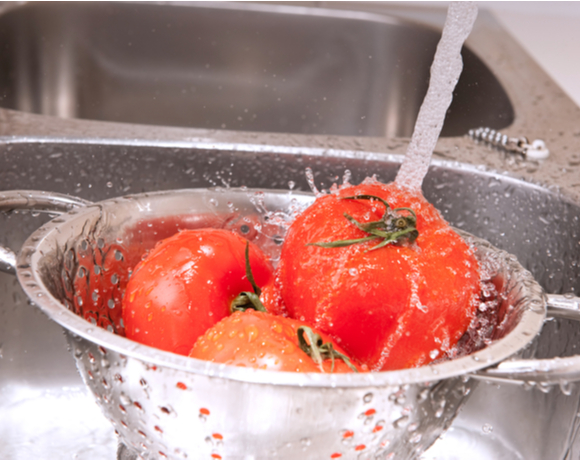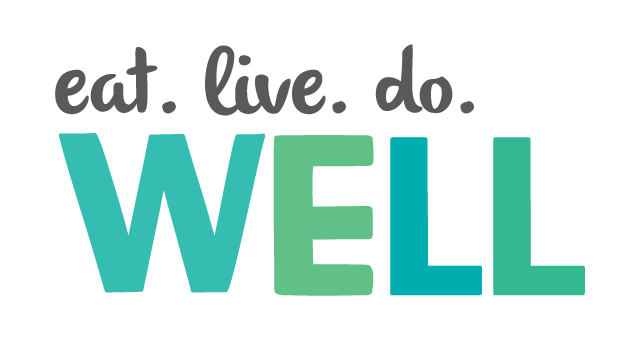A clean kitchen and good food handling practices are always important to reduce the risk of food-borne illness. The coronavirus pandemic has prompted a lot of consumer confusion around food handing and kitchen cleaning practices, made worse by viral videos recommending not just unnecessary, but also unsafe practices.

Please remember, coronaviruses are generally thought to be spread from person-to-person through respiratory droplets. Currently there is no evidence to support transmission of COVID-19 associated with food or food packaging. Read this again and let it sink in as much of the misinformation ignores this basic fact.
I like to divide the mountains of recommendations into three categories:
- Must follow practices – these are science based recommendations from the CDC, FDA or other research institutions
- Distractions – these recommendations might sound cool, and are probably not harmful, but can distract from focusing on the really important things you can do to keep you and your family safe.
- Dangerous Practices – these could lead to physical harm or ill effects
Must Follow Practices
Start with a clean kitchen
According to IFIC, researchers are still working to establish how long the COVID-19 virus can stay alive on surfaces, but if it is like other coronaviruses, it can remain viable (cause disease) for a few hours up to a few days. This is why it is so important to keep kitchen surfaces clean. Kitchen counters, refrigerator handle and shelves, faucets, microwave handles, utensils, and other food preparation devices can be cleaned with an antimicrobial disinfectant that will kill germs, including coronavirus. Good household hygiene means cleaning and disinfecting the same areas you tackle in normal times. Consumer Reports has a list of common household cleaners that kill coronavirus. And Eating Well has a great list of EPA approved disinfectants. Don’t forget to frequently clean other high touch surfaces in and around the kitchen like light switches, remote controls, doorknobs, tablet and mobile phone, and your computer keyboard. Apple recently said it is okay to use Clorox disinfectant wipes on your iPhone, reversing previous advice. Just don’t use aerosol spray. This may be a good time to declutter your countertops and avoid placing shopping bags, handbags or backpacks on the counters. Also, this may be the time to change your kitchen sponge, a major potential source of bacteria, and to wash dish towels after each use.
Shop Smart
Joseph Vinetz, a Yale Medicine infectious disease specialist, says: “We have no evidence whatsoever that people can get this virus at home. Period.” Unless, of course, somebody who has been exposed enters your house and coughs, sneezes or is in close proximity to you for more than 15 minutes. The real risk of contracting the disease is going out in public.
Whether you venture out to the supermarket yourself, or use an online order/ delivery service the biggest risk is your interaction with other people…..grocery checkout folks, delivery staff, and other shoppers. Keep your distance, patronize stores that have installed plexiglass barriers to separate you from checkout staff, wipe down cart or basket handles with sanitizing wipes and use hand sanitizer immediately after paying. Then wash your hands thoroughly when you get home and after you unpack your purchases. If you are ordering groceries online, request they be left outside your door. Please do tip the delivery person, but do it online or leave a tip in an envelope outside.
Safe Food Handling and Preparation Practices
Don’t place grocery bags or delivery boxes on countertops. Wash reusable grocery bags after every use in the washing machine with hot water and detergent and dispose of delivery boxes outside.
In general, because of poor survivability of these coronaviruses on surfaces, there is likely very low risk of spread from food products or packaging that are shipped over a period of days or weeks at ambient, refrigerated, or frozen temperatures. The FDA recommends that if you are concerned about contamination of food or food packaging, wash your hands after handling food packaging, after removing food from the packaging, before you prepare food for eating and before you eat.
Fruit and vegetables should be rinsed in cold running water. Rub outer skin gently on delicate items and scrub thick rinds or peels. You should always handle and prepare food safely, including keeping raw meat separate from other foods, refrigerating perishable foods, and cooking meat to the right temperature to kill harmful germs. See the CDC’s Food Safety site for more information.
The Distractions
These practices, while not outright harmful, can distract you from focusing on the really important things you need to do:
- Wearing gloves to shop and or unpack delivery boxes and grocery bags. It certainly doesn’t hurt, but may give you a false sense of security-many individuals still touch their face with gloves on. If you wear gloves, it’s also important to remove and dispose of them correctly. There is nothing worse than seeing a parking lot littered with disposable gloves – a sight all too common recently. Even with gloves, it is important to wash your hands every time you remove or change gloves.
- Wiping off packages of food – if it makes you feel better, go ahead, but make sure not to touch the food itself.
- Washing produce in vinegar. Not harmful, but not helpful.
The Dangerous – Do not do these!
- Washing produce or other groceries in bleach, detergent or hand soap solutions is not helpful and can be dangerous. These products are not intended or approved for human consumption and even if you rinse well, you risk making yourself ill from consuming small amounts. Again, all evidence shows that COVID-19 is not transmitted via food.
- Mixing cleaning products or formulating your own cleaning products. Many combinations of disinfectants and cleaning products can produce toxic fumes (think bleach and ammonia) and should never be combined. Trying to formulate your own cleaners by mixing products is risky.
- Leaving groceries outside for three days is a bad idea from a food safety standpoint for perishables that need to stay refrigerated. Also, you risk attracting rodents or having your groceries contaminated by curious wildlife.
Related:
Holiday Food Safety // Staying Healthy During the COVID-19 Outbreak // Where to Find Accurate COVID-19 information



Leave a Reply
You must be logged in to post a comment.